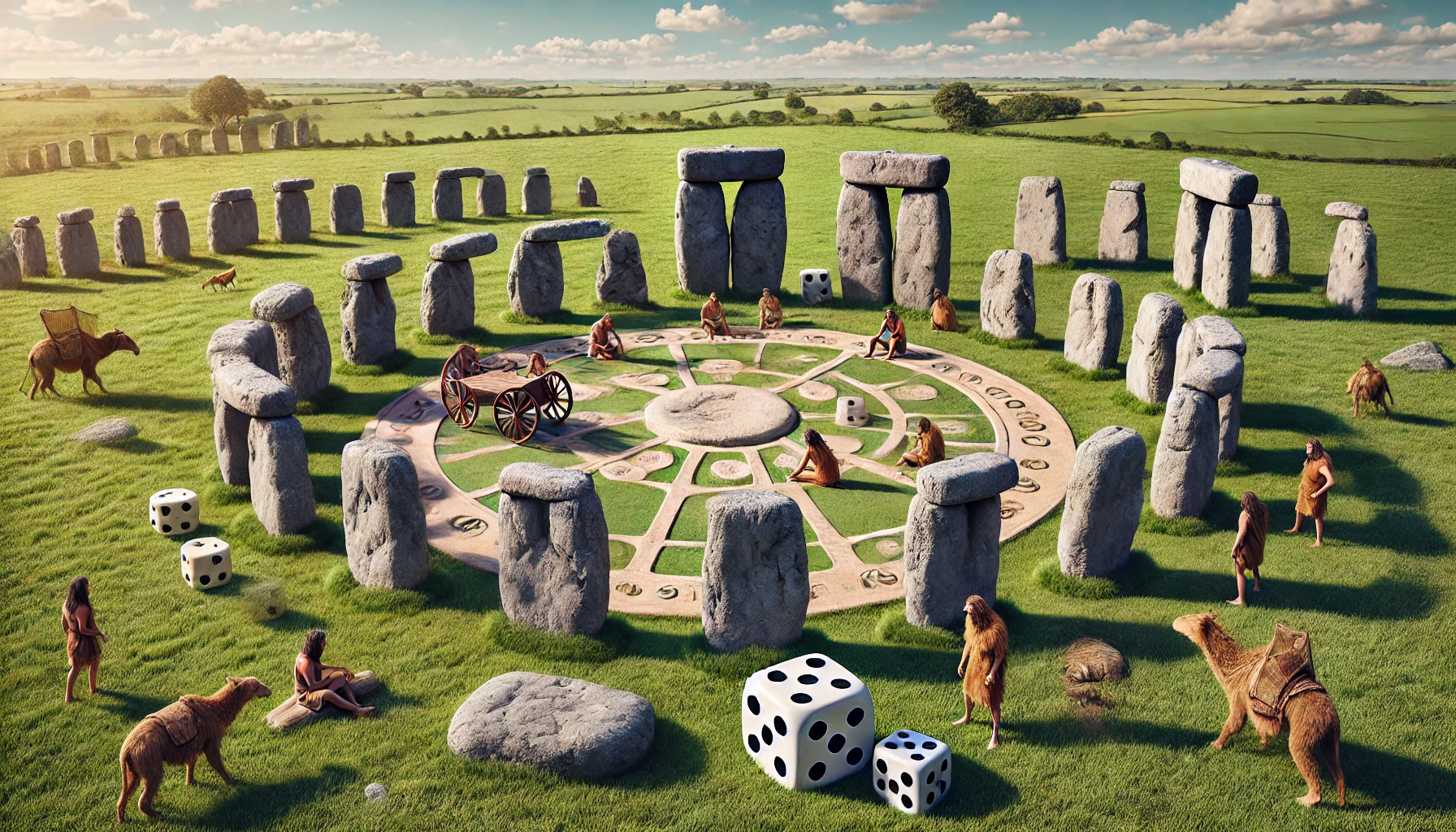Archaeologists have unveiled a shocking new theory about Stonehenge, the iconic prehistoric monument in England: it was actually an ancient, oversized board game.
According to Dr. Imogen Pebble, a leading researcher in speculative archaeology, the massive stones arranged in a circular pattern were likely part of a game similar to modern-day chess or Monopoly. “We believe the players used the smaller bluestones as game pieces,” Pebble explained. “The alignment of the stones indicates rules we have yet to fully decipher, but it’s clear they took this game very seriously.”
Evidence supporting this claim includes the discovery of what Dr. Pebble has dubbed “dice stones” found near the site. These irregularly shaped rocks are thought to have been rolled across the ground to determine players’ moves. “The grooves on some of the larger stones may have been part of a primitive scoring system or even an ancient leaderboard,” she added.
Further analysis of nearby burial mounds suggests that losing a match could have been more than just a bruised ego. “One grave contains a skeleton clutching a broken bluestone,” said Pebble. “This individual might have been the sore loser of the prehistoric world.”
Local historians are split on the new theory. Professor Nigel Rollwright, a Stonehenge traditionalist, dismisses the claim as “utter nonsense.” “To suggest that our ancestors would go to such extraordinary lengths for a board game is laughable,” he scoffed. However, he begrudgingly admitted that if Stonehenge were a board game, “it would certainly explain why they built it in such an inconvenient place.”
Not to be outdone, game enthusiasts have already dubbed the newfound revelation “The Prehistoric Game of Thrones,” and replicas of the ancient board are being produced for a Kickstarter campaign. “Imagine family game night, but with 5-ton stones!” said a delighted backer.
Dr. Pebble and her team continue to decode what they’re calling “the Stonehenge Ruleset.” Until then, tourists are encouraged to bring their own dice and play along—just don’t get caught rolling a bluestone into traffic.
